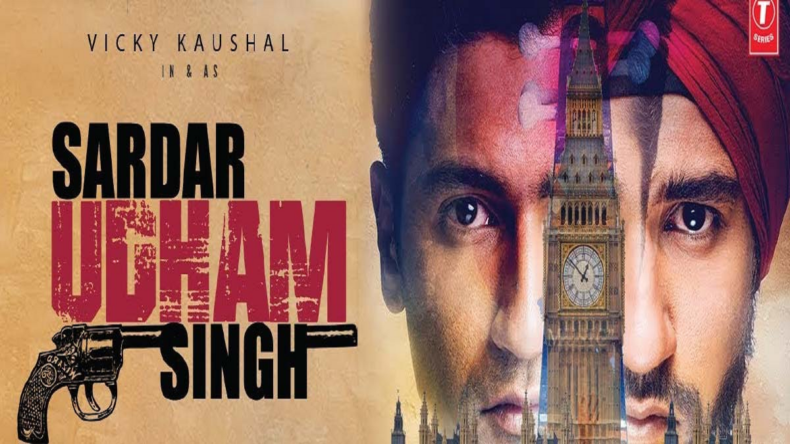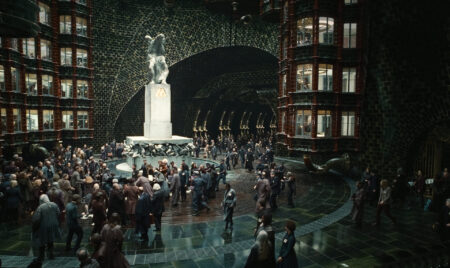Sardar Udham Review: Lead role Vicky Kaushal gives an emotional and perceptive portrayal in the brilliantly lensed biography.
The meticulously planned period narrative has a vast grandeur, but Shoojit Sircar’s Sardar Udham avoids the clichés of a Bollywood biography. But that isn’t the film’s only redeeming feature, and Vicky Kaushal’s powerful and insightful performance in the wonderfully lensed biopic adds to the film’s force.
Sardar Udham portrays a pioneering hero of India’s freedom movement as a genuine, relatable, laddoo-loving young man who happened to be someone witnessing death up close and in such horrible circumstances.
His willpower was to avenge the innocent victims of the Jallianwala Bagh massacre became a self-assigned purpose.
Sardar Udham, which is currently streaming on Amazon Prime Video, sets the bar for the genre. The term is used for simplicity, not to imply that the movie will be in any way basic – in a manner that will be difficult for the Mumbai film industry to match.
The Mumbai film industry is known for producing pericarp pop history in which the artist takes priority over the character.
The facts on screen may not be entirely accurate – a disclaimer at the beginning of the film acknowledges as much, although Sardar Udham is “based on true events.” However, the information that screenwriters Subhendu Bhattacharya and Ritesh Shah cram into the crowded script is gets meticulously planned to convey the idea of truth.
Despite its length and back-and-forth in time tempo, Sardar Udham is always fascinating and significant since it is first and primarily a methodical character study and not merely an action-driven narrative.
Vicky Kaushal’s Performance
Vicky Kaushal gives his greatest performance yet as Shaheed Udham Singh, depicting the intense psychological complexities of an ideologically motivated man unable to grasp or expressing milder feelings.
The film’s framework is well-thought-out, and the horrible bloodshed in the walled city of Amritsar on April 13, 1919, is presented in exquisite detail deep within the film’s closing stretch.
Shantanu Moitra’s subdued, understated, and immensely powerful background score best reflects the film’s essence.
Sircar has created a Hindi biopic that is both stunning and substantive, thanks to his cinematographer Avik Mukhopadhyay and the other of his technical crew. Sardar Udham exemplifies how much more successful a film can be when it isn’t a clumsy and bloated showcase for a self-obsessed A-list star preaching bogus patriotism.
Brigadier General Michael O’Dwyer (Shaun Scott), the lieutenant-governor of Punjab from 1912 to 1919, and General Reginald Dyer (Andrew Havill) directed the Jallianwala Bagh fire. It killed 20,000 men, women, and children, which are the two real villains in Sardar Udham. Because he is in Udham Singh’s direct line of fire, the former attracts far more attention than the latter.
The White man is always a caricatured monster in Indian cinema about the repressive character of British rule. This is not the case. Sardar Udham gives us a glimpse into O’Dwyer’s twisted mind, revealing his fervent belief that when the Empire left India to its ways, the country would descend into disorder and cruelty without any overt theatrical flourish, and its citizens would begin murdering one another.
That is one of the character’s final statements on a tragic day. The assassination of O’Dwyer occurs early in the film. Sardar Udham is devoted to a dual-track storyline that weaves together the stories of the two individuals engaged in the incident: the assassin and his target.
Not all of the British personalities in Sardar Udham are repulsive, including Scotland Yard’s Detective Inspector Swain (Stephen Hogan). He develops a scornful admiration for the Indian revolutionary and then a complete understanding of his motivations while investigating the O’Dwyer assassination situation.
Udham Singh’s mission isn’t a one-and-done operation; it’s more of a granular build-up. In some ways, it’s a slow, agonizing slog, and the film honoring his fortitude doesn’t rush to give his story any artificial momentum.
Sardar Udham would not go for the easy way out and stage a ‘celebration’ of the protagonist’s valor. Instead, it looks at why he went to such lengths to exact vengeance on the man he blames for the deaths of thousands of his compatriots. The script reveals a personal motivation for Udham Singh’s relentless pursuit of O’Dwyer. But the audience must wait for a couple of hours and a half for that disclosure.













